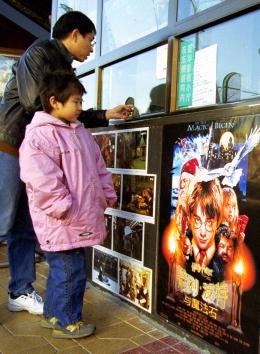By tapping technology to make it easier for Chinese moviegoers to buy film tickets, marketing experts hope to improve the rate of movie-watching among local which is currently one ticket per capita. In the U.S., the figure is an enviable 3.8 tickets per capita.
However, with the sheer number of China’s population of more than one billion people and predictions that in a number of years, the Asian giant would be the world’s biggest cinema market, experts see tremendous growth opportunity by using technology.
The battle that China’s film industry has to wage with is young people’s time. “We want to embrace that challenge,” Luke Xiang, vice president and head of international for Beijing Weying Technology at the American Film Market’s event at Fairmont Hotel in China, Variety reported.
He pointed that most Chinese movie-going youth purchase their film tickets using the Wechat wallet because it takes them only 10 seconds to complete the transaction. The younger the average age of moviegoers, the more tech-savvy they are to try other options of buying tickets.
The average age of Chinese moviegoers went down by three years to 24 from 27. However, one alarming trend is the China box office decline that experts forecast the projected 2017 year when China would overtake the U.S. and the world’s largest film market would be delayed by two years to 2019.
Among the explanation for the slowdown is competition from television as viewers seek more emotional content, Yugang An of Beijing In-Entertainment said. With hit TV series such as “Descendants of the Sun” and “Moon Lovers: Scarlet Heart Ryeo” providing Chinese viewers the emotional content, marketing experts would have to tap family audiences to maintain growth of the market in China.
According to Variety, for the fifth consecutive month, China’s box office declined 19 percent in October compared to the same month in 2015. Movies shown last month earned $509 million (3.41 billion yuan), lower than the $628 million (4.21 billion yuan) in October 2015.



























